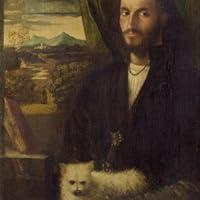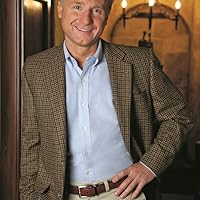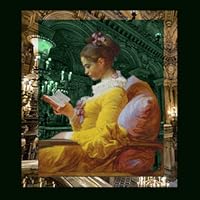Da Vinci Quotes
Quotes tagged as "da-vinci"
Showing 1-21 of 21

“In rivers, the water that you touch is the last of what has passed and the first of that which comes; so with present time.”
―
―

“The greatest story ever told is, in fact, the greatest story ever sold”
― Connect Bible Studies: The Da Vinci Code
― Connect Bible Studies: The Da Vinci Code

“For self-educated scientists and thinkers such as Charles Darwin, Srinivasa Ramanujan, Leonardo-da-Vinci, Michael Faraday, myself and many others, education is a relentless voyage of discovery. To us education is an everlasting quest for knowledge and wisdom.”
― The Education Decree
― The Education Decree

“Lisbon, to me,
is the Lisbon of Pessoa.
Just like London is Woolf’s,
or rather, Mrs. Dalloway’s.
Barcelona is Gaudí's
and Rome is da Vinci’s.
You see them in every crevice
and hear their echoes
in every cathedral.
I’d like to be the child,
or rather, the mother of a city
but I neither have a home
nor a resting place.
My race is humankind.
My religion is kindness.
My work is love
and, well, my city
is the walls of your heart.”
―
is the Lisbon of Pessoa.
Just like London is Woolf’s,
or rather, Mrs. Dalloway’s.
Barcelona is Gaudí's
and Rome is da Vinci’s.
You see them in every crevice
and hear their echoes
in every cathedral.
I’d like to be the child,
or rather, the mother of a city
but I neither have a home
nor a resting place.
My race is humankind.
My religion is kindness.
My work is love
and, well, my city
is the walls of your heart.”
―

“(The Mona Lisa), that really is the ugliest portrait I’ve seen, the only thing that supposedly makes it famous is the mystery behind it,” Katherine admitted as she remembered her trips to the Louvre and how she shook her head at the poor tourists crowding around to see a jaundiced, eyebrow-less lady that reminded her of tight-lipped Washington on the dollar bill. Surely, they could have chosen a better portrait of the First President for their currency?”
― Brushstrokes of a Gadfly
― Brushstrokes of a Gadfly

“One of the best examples of a polymath is Leonardo da Vinci. Born in Italy in 1452, Leonardo was a sculptor, painter, architect, mathematician, musician, engineer, inventor, anatomist, botanist, geologist, cartographer and writer. Although he received an informal education that included geometry, Latin and mathematics, he was essentially an autodidact, or a self-taught individual.”
― Genius Intelligence
― Genius Intelligence
“Ah, he has too many ideas, that man da Vinci. His mind works faster than his hands.”
― Blood & Beauty: The Borgias
― Blood & Beauty: The Borgias

“Unfortunately, Da Vinci was a prankster who often amused himself by quietly gnawing at the hand that fed him. He incorporated in may of his Christian paintings hidden symbolism that was anything but Christian - tributes to his own beliefs and a subtle thumbing of his nose at the Church.”
― The Da Vinci Code
― The Da Vinci Code

“When I was in art school, we were looking one day at a slide of some great fifteenth century painting, and one of the students asked 'Why don't artists paint like that now?' The room suddenly got quiet. Though rarely asked out loud, this question lurks uncomfortably in the back of every art student's mind. It was as if someone had brought up the topic of lung cancer in a meeting within Philip Morris.
'Well,' the professor replied, 'we're interested in different questions now.' He was a pretty nice guy, but at the time I couldn't help wishing I could send him back to fifteenth century Florence to explain in person to Leonardo & Co. how we had moved beyond their early, limited concept of art. Just imagine that conversation.
In fact, one of the reasons artists in fifteenth century Florence made such great things was that they believed you could make great things. They were intensely competitive and were always trying to outdo one another, like mathematicians or physicists today—maybe like anyone who has ever done anything really well.
The idea that you could make great things was not just a useful illusion. They were actually right. So the most important consequence of realizing there can be good art is that it frees artists to try to make it.”
―
'Well,' the professor replied, 'we're interested in different questions now.' He was a pretty nice guy, but at the time I couldn't help wishing I could send him back to fifteenth century Florence to explain in person to Leonardo & Co. how we had moved beyond their early, limited concept of art. Just imagine that conversation.
In fact, one of the reasons artists in fifteenth century Florence made such great things was that they believed you could make great things. They were intensely competitive and were always trying to outdo one another, like mathematicians or physicists today—maybe like anyone who has ever done anything really well.
The idea that you could make great things was not just a useful illusion. They were actually right. So the most important consequence of realizing there can be good art is that it frees artists to try to make it.”
―
“While working on The Last Supper, Leonardo da Vinci regularly took off from painting for several hours at a time and seemed to be daydreaming aimlessly. Urged by his patron, the prior of Santa Maria delle Grazie, to work more continuously, da Vinci is reported to have replied, immodestly but accurately, 'The greatest geniuses accomplish more when they work less.”
― The Way We're Working Isn't Working: The Four Forgotten Needs That Energize Great Performance
― The Way We're Working Isn't Working: The Four Forgotten Needs That Energize Great Performance

“If someone told me I could hang out in da Vinci's studio while he painted the Mona Lisa or go up on Brian's roof with him at night - I'm on the roof”
―
―

“It would be futile to delude ourselves that at present, readers find every pathography unsavory. This attitude is excused with the reproach that from a pathographic elaboration of a great man one never obtains an understanding of his importance and his attainments, that it is therefore useless mischief to study in him things which could just as well be found in the first comer. However, this criticism is so clearly unjust that it can only be grasped when viewed as a pretext and a disguise for something. As a matter of fact pathography does not aim at making comprehensible the attainments of the great man; no one should really be blamed for not doing something which one never promised. The real motives for the opposition are quite different. One finds them when one bears in mind that biographers are fixed on their heroes in quite a peculiar manner. Frequently they take the hero as the object of study because, for reasons of their personal emotional life, they bear him a special affection from the very outset. They then devote themselves to a work of idealization which strives to enroll the great men among their infantile models, and to revive through him, as it were, the infantile conception of the father. For the sake of this wish they wipe out the individual features in his physiognomy, they rub out the traces of his life's struggle with inner and outer resistances, and do not tolerate in him anything of human weakness or imperfection; they then give us a cold, strange, ideal form instead of the man to whom we could feel distantly related. It is to be regretted that they do this, for they thereby sacrifice the truth to an illusion, and for the sake of their infantile phantasies they let slip the opportunity to penetrate into the most attractive secrets of human nature.”
― Leonardo da Vinci and a Memory of His Childhood
― Leonardo da Vinci and a Memory of His Childhood

“We all still show too little respect for nature, which in Leonardo's deep words recalling Hamlet's speech "is full of infinite reasons which never appeared in experience." Every one of us human beings corresponds to one of the infinite experiments in which these "reasons of nature" force themselves into experience.”
― Leonardo da Vinci and a Memory of His Childhood
― Leonardo da Vinci and a Memory of His Childhood

“When wine is drunk by a drunkard, that wine is revenged on the drinker.
Leonardo Da Vinci Notebooks, 1281”
―
Leonardo Da Vinci Notebooks, 1281”
―

“The glory of being an artist, he realized, was that reality should inform but not constrain”
― Leonardo da Vinci
― Leonardo da Vinci

“Da Vinci sketched out the design for a helicopter over 500 years ago. Today, that makes those flying machines as impressive as a Pekin duck wildly flapping its wings and soaring through the skies at a height of just over four feet.”
― Duck Quotes For The Ages. Specifically ages 18-81.
― Duck Quotes For The Ages. Specifically ages 18-81.
“Every work of art was a thing of beauty and every phrase of poetry was a line to remember. We cannot compare Wordsworth to Tennyson, nor can we compare Picasso to Michaelangelo. We all know, different artists and poets are special in their own ways.”
― A Play of the Cosmos: Script of the Stars
― A Play of the Cosmos: Script of the Stars
“Ett tillbakavisande av Freuds tolkning kan lätt få katastrofal effekt: man säger, inte bara att Freuds tolkning förmodligen inte stämmer in på den faktiske, historiske Leonardo, utan i själva verket också att Leonardos målningar inte har någon innebörd.”
― Om undran inför samhället
― Om undran inför samhället
All Quotes
|
My Quotes
|
Add A Quote
Browse By Tag
- Love Quotes 97k
- Life Quotes 75.5k
- Inspirational Quotes 72.5k
- Humor Quotes 43.5k
- Philosophy Quotes 29.5k
- Inspirational Quotes Quotes 27k
- God Quotes 26k
- Truth Quotes 23.5k
- Wisdom Quotes 23.5k
- Romance Quotes 23k
- Poetry Quotes 22k
- Death Quotes 20k
- Happiness Quotes 18.5k
- Life Lessons Quotes 18.5k
- Hope Quotes 18k
- Faith Quotes 18k
- Quotes Quotes 16.5k
- Inspiration Quotes 16.5k
- Spirituality Quotes 15k
- Religion Quotes 15k
- Motivational Quotes 15k
- Writing Quotes 14.5k
- Relationships Quotes 14.5k
- Life Quotes Quotes 14k
- Love Quotes Quotes 13.5k
- Success Quotes 13.5k
- Time Quotes 12.5k
- Motivation Quotes 12k
- Science Quotes 11.5k
- Knowledge Quotes 11k

